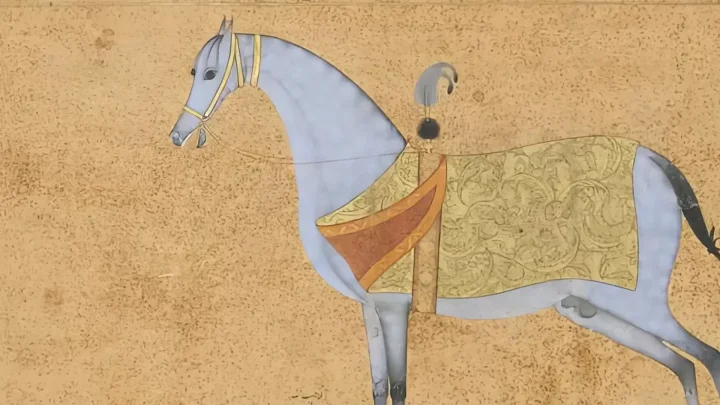In a famous Islamic tradition, a mysterious stranger knelt before the Prophet Muhammad and asked him profound questions about faith. After the man left, the Prophet turned to his companions and said, “That was Gabriel. He came to you in order to teach you of your religion.”
Table of Contents
- 1.1 😇 What Exactly Are Angels in Islam?
- 1.2 👑 Who Are the Most Powerful Angels in Islamic Tradition?
- 1.3 📖 Why is Gabriel So Central to the Quran?
- 1.4 🛡️ Was Gabriel Just a Messenger, or Also a Warrior and Teacher?
- 1.5 🕊️ How Did Gabriel Connect Islam to Judaism and Christianity?
- 1.6 ✨ Is Gabriel Still Relevant in Muslim Life Today?
This figure, the angel Gabriel (or Jibril in Arabic), is one of the most significant beings in Islam. He is not just a messenger but a teacher, a warrior, and a guardian. His story offers a fascinating look into how Islam understands the divine and its connection to other Abrahamic faiths.
😇 What Exactly Are Angels in Islam?
Before we dive into Gabriel, you might wonder what angels are in the Islamic worldview. Like in Judaism and Christianity, they are God’s messengers and agents created from light.
- They exist in an unseen spiritual realm but can interact with our world.
- Every person is said to have two angels who record their good and bad deeds.
- Belief in angels is a fundamental pillar of faith for all Muslims.
One of the big theological debates is whether angels have free will. Some scholars point to verses in the Quran stating angels “never disobey God’s commands.” Others highlight the story of two angels, Harut and Marut, who taught forbidden sorcery in Babylon, suggesting disobedience is possible. While the debate continues, it is universally accepted that angels do not sin, whether because they can’t or because they choose not to.
👑 Who Are the Most Powerful Angels in Islamic Tradition?
While Christianity often speaks of “archangels,” that term isn’t common in Islam. Instead, certain angels are known as the “head angels” or those “closest to God.” Four stand out:
- Gabriel (Jibril): God’s primary messenger to humanity and the prophets.
- Michael (Mikail): God’s messenger to the other angels.
- Azrael (Izra’il): The angel of death, who guides souls to the afterlife.
- Israfil: The angel who holds a trumpet to his lips, ready to signal the Day of Resurrection.
📖 Why is Gabriel So Central to the Quran?
Gabriel’s most famous role is being the heavenly emissary who delivered the Quran to the Prophet Muhammad. For Muslims, the Quran is the literal speech of God. This divine speech was passed voice-to-voice: from God to Gabriel, and from Gabriel to Muhammad.
This process began when Gabriel appeared to Muhammad in a cave, commanding him to “Recite!” Over the next 22 years, Gabriel continued to appear to the Prophet, revealing the scripture piece by piece until it was complete.
🛡️ Was Gabriel Just a Messenger, or Also a Warrior and Teacher?
Gabriel’s role went far beyond just relaying messages. Islamic tradition remembers him as a constant companion and protector to the Prophet.
- A Teacher: It was Gabriel who taught Muhammad the specific physical motions of daily prayer and the ritual washing (wudu) that precedes it.
- A Warrior: Traditions say Gabriel fought alongside Muhammad in key battles, sometimes leading an entire heavenly army.
- A Guardian: He encouraged the Prophet in difficult times, warned him of danger, and accompanied him on his miraculous Night Journey to the heavens.
His appearances varied. Sometimes he came in dreams, other times as a handsome man in white. But he could also appear in a terrifying, supernatural form with 600 wings, a sight so overwhelming it was physically taxing on the Prophet.
🕊️ How Did Gabriel Connect Islam to Judaism and Christianity?
Because Gabriel is a major figure in all three Abrahamic faiths, he serves as a powerful link between them. His appearance to Muhammad was seen as proof that the new faith was a continuation of the same divine tradition that produced Moses and Jesus.
When a group of Arabian Jews challenged Muhammad, stating they trusted the angel Michael but not Gabriel, a verse in the Quran was revealed:
“Whoever is an enemy of Gabriel… Whoever is an enemy of God, His angels, His messengers, Gabriel and Michael, then let them know that God is certainly the enemy of the disbelievers.” (Surah 2:97-98)
This positioned Islam as the rightful heir to the Abrahamic tradition, one that affirmed all of God’s prophets and angels.
✨ Is Gabriel Still Relevant in Muslim Life Today?
Beyond scripture, Gabriel’s presence is woven into the fabric of everyday Muslim life.
In folk practice, one of the most common incantations (ruqyah) for protection against illness and the evil eye is said to have been taught by Gabriel himself. Among Sufi mystics, Gabriel is often seen as a symbol of the “active intellect,” the divine force that connects the human mind with higher truths and inspiration.
He is a messenger, teacher, warrior, and friend—a complex figure who represents both the knowable and the awesome, terrifying power of the divine.
